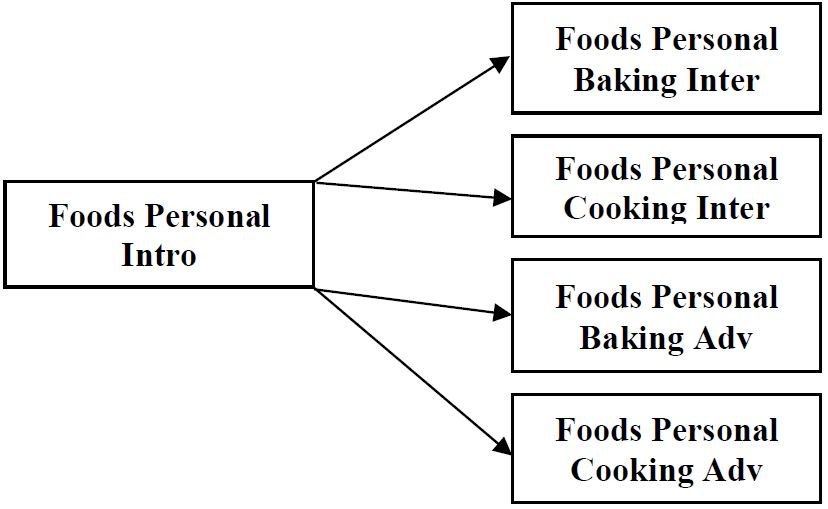Come and enjoy the class of wonderful aromas
Many a student walking the hallowed halls of Churchill have been drawn by the amazing odours wafting out of Room 119. That's the Foods classes whipping up another culinary treat. If you love food and want to learn how to cook and bake like the pros, then these classes are for you!
Click on the image to the right to be taken to a fun video about the foods classes. If that's not your cup of tea (haha!) then read this essay by Elaine Corn entitled "Why Learn to Cook".
Why Learn to Cook?
The new year brings with it lots of self-benefiting promises you hope you won't break within a month or two (or three). Instead of the usual empty resolution to lose weight, why not vow to learn to cook? It's a skill you'll use the rest of your life. Knowing just a few simple recipes will put you in enough control of your diet to probably lose a little weight, too.
Why it's important to learn to cook has to do with what I like to term the ancillary psychology of liberation. Knowing how to cook is a freeing ability. You unchain yourself from the need to eat out constantly, the financial obligation you have to those on whom you depend for every bite, the lack of control over your nutrition, and the hollow existence that implies that when you're hungry, you have to get in the car.
Replacing these burdens with a sense of self-determination actually makes you feel good. Cooking your own dinner even once or twice a week is the stuff of radical change. You'll spend less, eat better (or at least what you want, and in your pajamas, if you like) and feel in charge of a part of your life previously owned by others.
How to start? The first important motivator is to believe that you can cook as well as many of the folks whose food you've been relying on up to now. Do you eat a lot of hamburgers and frozen dinners? Do you eat lousy pasta at the all-you-can-eat pasta buffet where they practically give you the food free but charge a mortgage payment for your beverage? I promise you, in this time of new promises, that YOUR sauteed chicken breasts, a salad of your own making, and a fresh vegetable will taste better and be better for you than all of the above.
Courses

Foods Personal Intro - 3 credits
Students will learn the basics of cooking and baking by developing skills in the preparation of a variety of foods.
Each module in the Foods Personal Intro course consists of a combination of food preparation labs and written activities. Learning how to plan, prepare and serve family size portions. Each module will include food sanitation, kitchen safety, and nutritional well-being.
You must successfully complete the Food Basics 1010 module in order to take sequential courses in Grades 11 or 12.
Foods Personal Baking Inter - 3 credits
Prerequisite: Foods Personal Intro
This course is in greater depth than Intro with a focus on Baking. Students will develop their skills and learn to prepare a variety of baked goods from Yeast Breads, Cakes and Pastry and piping and icing techniques.
Foods Personal Baking Adv - 3 credits
Prerequisite: Foods Personal Intro
Foods Personal Baking Adv is in further depth into baking techniques and various types of icing. Written projects and baking projects are an expectation.
Foods Personal Cooking Inter – 3 credits
Prerequisite: Foods Personal Intro
More advanced cooking techniques and styles are practiced. Nutrition and healthy food choices and styles are explored. Modules include; Safety and Sanitation, International and Vegetarian Cuisine.
Foods Personal Cooking Adv - 3 credits
Prerequisite: Foods Personal Intro
Cooking at the Advanced level is advanced and continuing on from Cooking Inter. In this course, more advanced cooking styles are explored. Theory and written work as well as selecting recipes are an integral part of this course.
